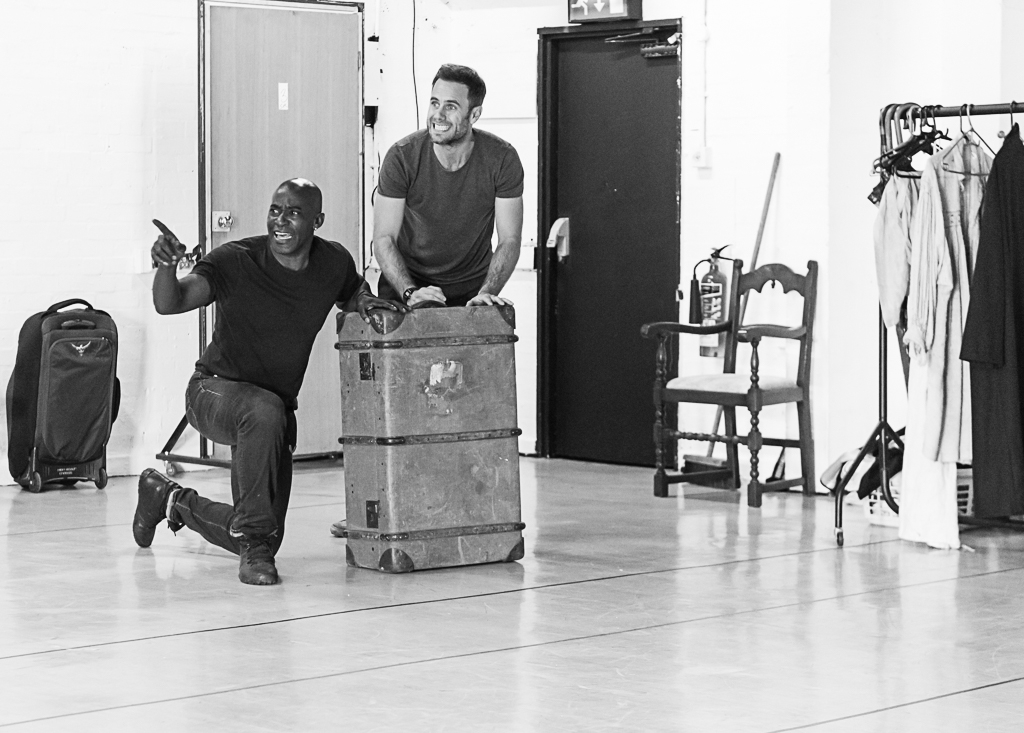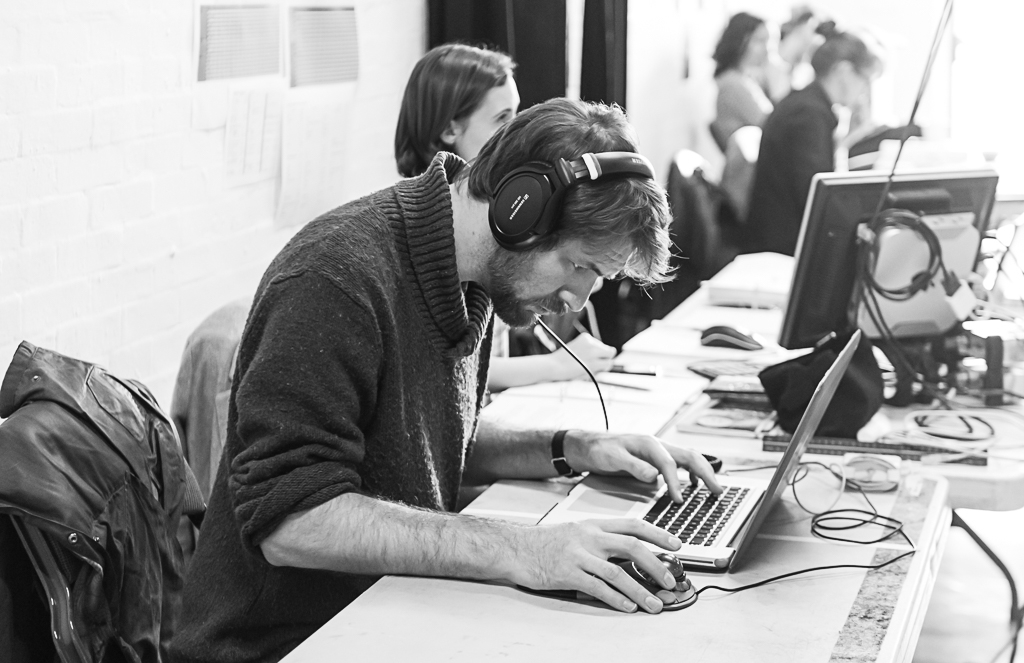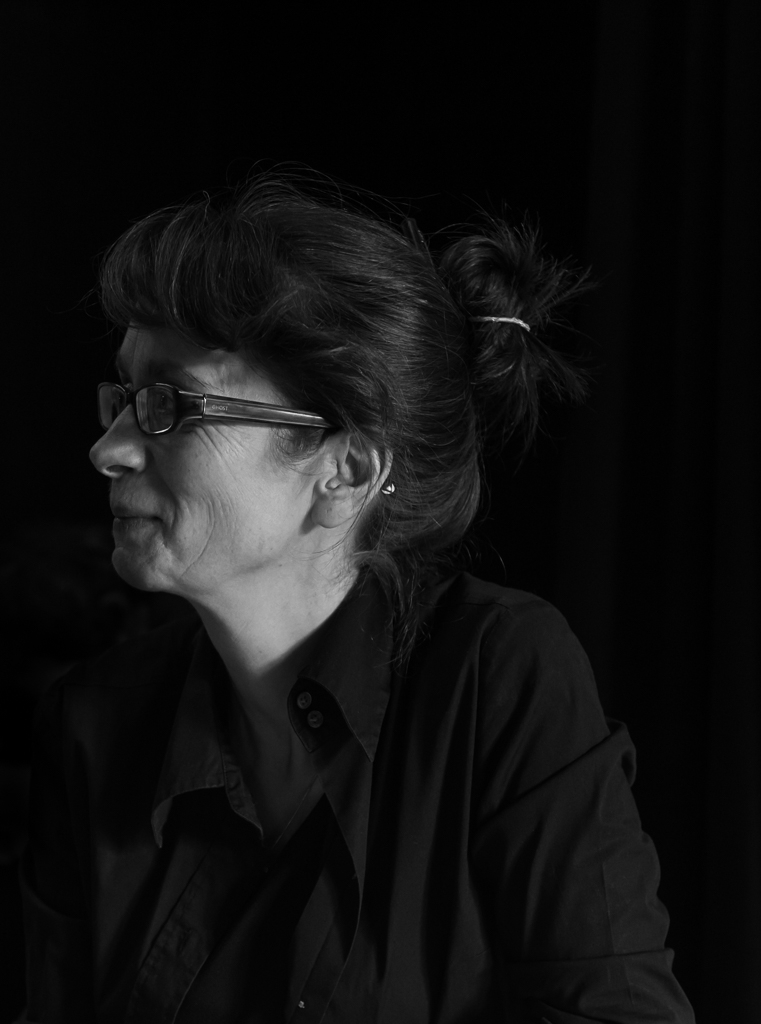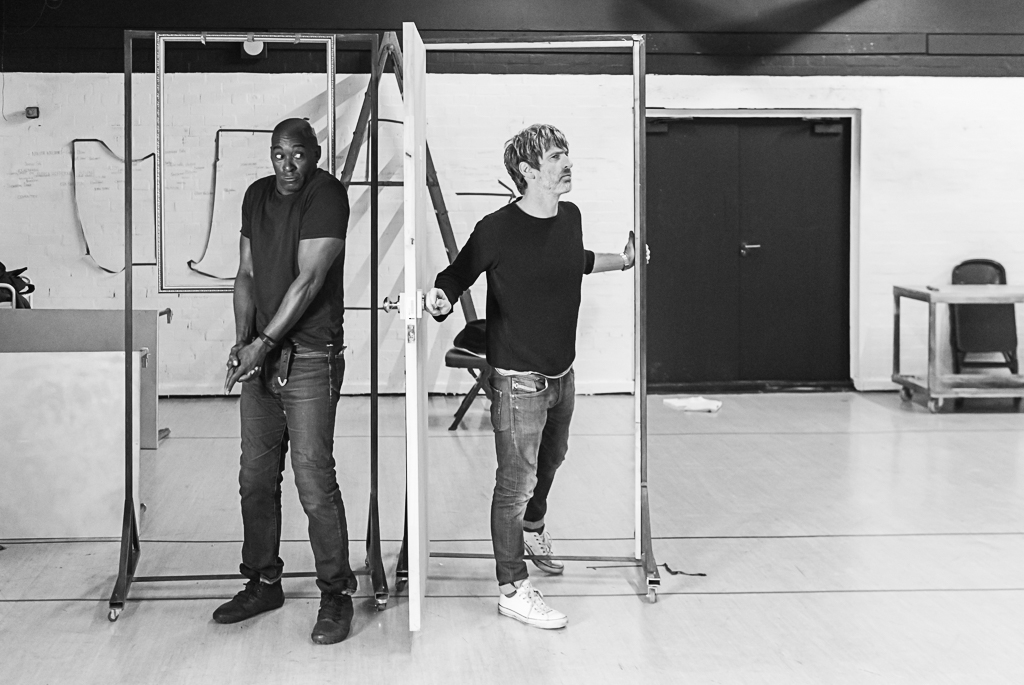Baskerville Rehearsal Blog // Week Two, Three & Four
‘It has long been an axiom of mine that the little things are infinitely the most important’ - Sir Arthur Conan Doyle
There is no set formula for how to rehearse a play and every production is entirely different. The madcap nature of Baskerville warrants it’s own unique process, as the sheer volume of characters, locations, scene transitions and costume changes mean that we have a lot of factors to consider. Entrances and exits have to be considered in relation to which character one is playing next, a lot of the props have to be preset in costume coats from the beginning of the show as there is no time for them to be retrieved once the play has started. Our designer Simon Daw and director Loveday Ingram have come up with an ingenious system of tracks, upon which pieces of scenery and furniture can be winched onto the stage. But the logistics of juggling what comes on when and goes off where is mind boggling.

The end of the second week of rehearsals brings us to what is affectionately known as a ‘stagger through’, a very crude assembly of the work that we have done thus far, which allows us to understand the geography of the play from beginning to end. Stagger, for me, is the appropriate word in this case, as I stagger, stumble and occasionally actually fall from scene to scene, not really knowing which scene is up next until I find myself in it, speaking the lines (or at least a rough approximation of the lines that Ken Ludwig wrote...good job he wasn’t in the room for this one...) It’s a useful experience however, and not to be taken too seriously. More than anything, the stagger through is a useful exercise in consolidation and simply realising where one will find oneself at any given moment in the play.

Week three brings a new member to our team in the form of Marcello Magni, a co-founder of critically acclaimed physical theatre company Complicité. Marcello has been brought in as Commedia consultant and movement director, bringing a vast amount of physical comedy experience to our production. We work through some of the bigger more complicated physical sequences and transitions, with ‘the Maestro’ adding some ‘Marcello magic’ as we go. I’m not enormously experienced when it comes to physical comedy, so it’s a real privilege to work with one of the world’s most highly regarded physical theatre practitioners. As we continue through the play, the devil, it seems, is in the detail. We often go over small movements or sequences many times in succession, which seems repetitive at first, but this repetition soon reveals that of course precision and fine detail is the key to this style of comedy. Moving a beat too late or a gesture not quite being visible enough can literally mean the difference between a big laugh and an embarrassing tumbleweed moment. And I think we all know which of those two outcomes we prefer.

For her part, our director Loveday Ingram has the enormous and onerous task of creating the entire picture of the play, visually and aesthetically from how the characters interact, to the rhythm of the whole show. It’s a mammoth task, but Loveday has a huge amount of experience in directing large scale theatre, having worked extensively for the Royal Shakespeare Company, Chichester Festival Theatre and Theatre Royal Bath to name but a few, as well as extensively in opera and in the West End, so she executes this herculean challenge with good humour and total aplomb.
As we progress into week 4 of rehearsals, more and more pieces of the actual set and costume design start to filter into the room. This is an important aspect of the process, especially for a comedy where timing is essential. In Baskerville, Ken Ludwig has written a very physically immersive comic thriller, parts of which rely on very specific timing, and so without knowing the exact dimensions of a door or knowing how heavy a certain type of chair or walking stick will be, it’s very difficult to assess whether a specific move or scene change will work. This conundrum is at the heart of every production; the design, wardrobe and stage management team are working tirelessly to source materials, props and clothes for us actors and we want them as soon as possible, yet it’s impossible to anticipate most of these things prior to the start of rehearsals as often we aren’t sure what is actually necessary until rehearsals are well underway. Think of it as a sort of theatrical ‘chicken and egg’ situation...!

Nevertheless, an amazing array of Victorian props, hats and pieces of furniture begin to appear, and the room starts to resemble a curiosity shop more than a rehearsal space. Which is brilliant for us actors, especially for me, as I am discovering that Holmes is a restless soul and generally likes to fiddle, and thus I like to find a prop or two to engage with at some point during a scene, only if it is in keeping with the character and story, of course. Sceptics call this sort of thing ‘business’ and is often frowned upon. But I, like my character Mr. Holmes, believe that detail is important and ‘it has long been an axiom of mine that the little things are infinitely the most important.’ Amen.